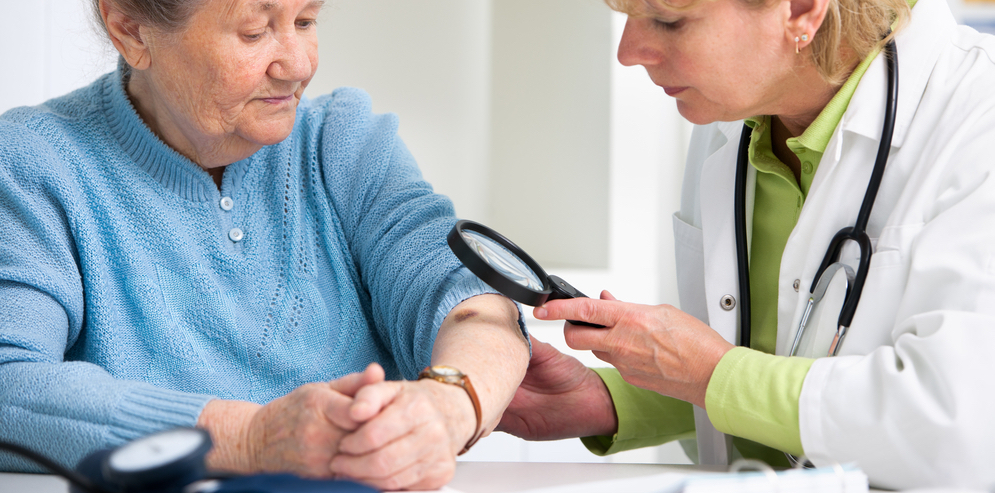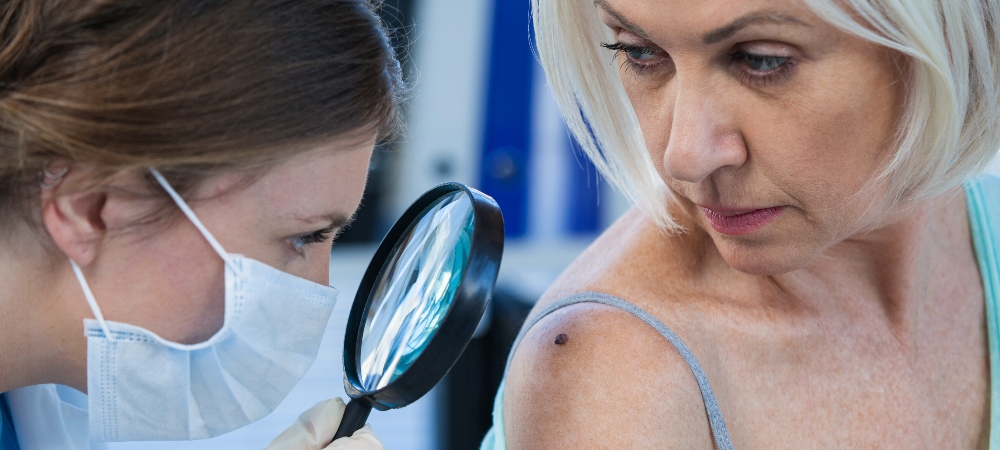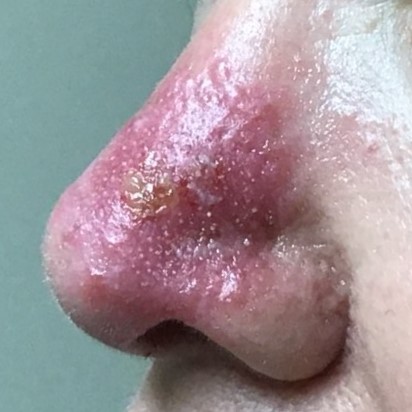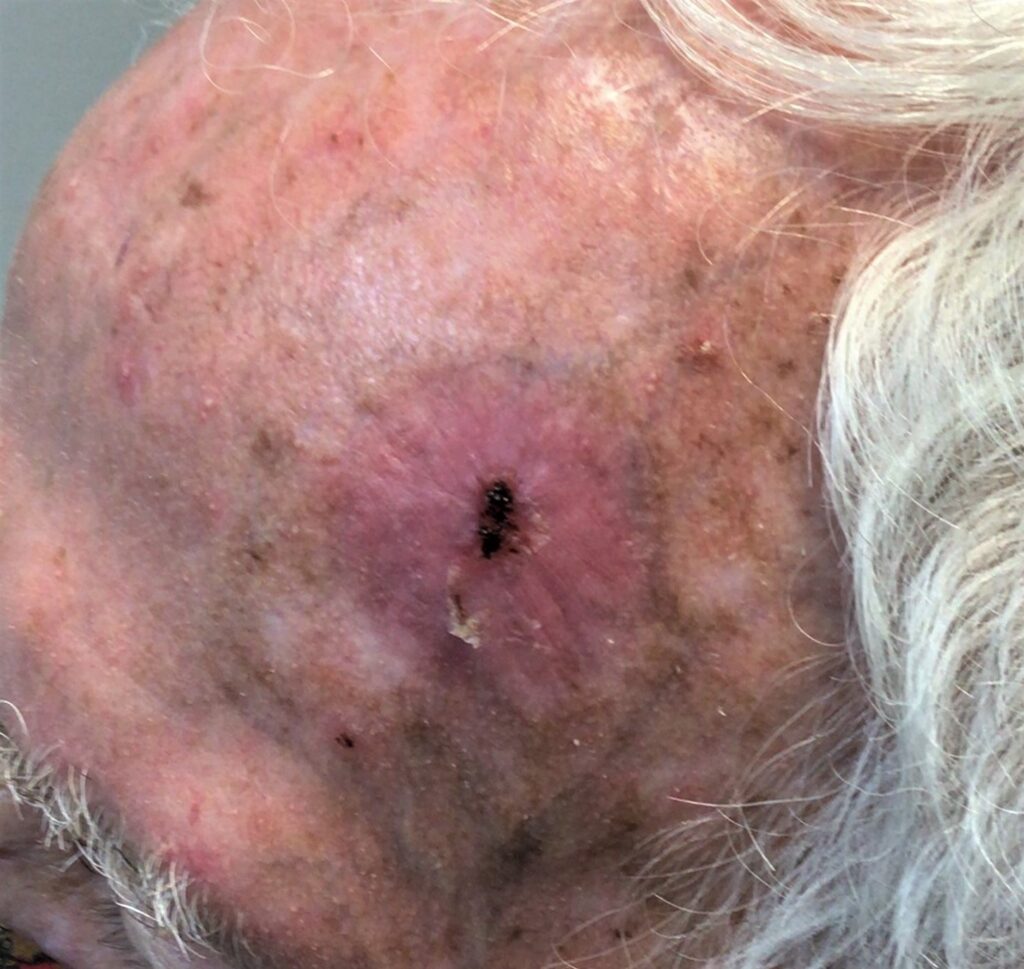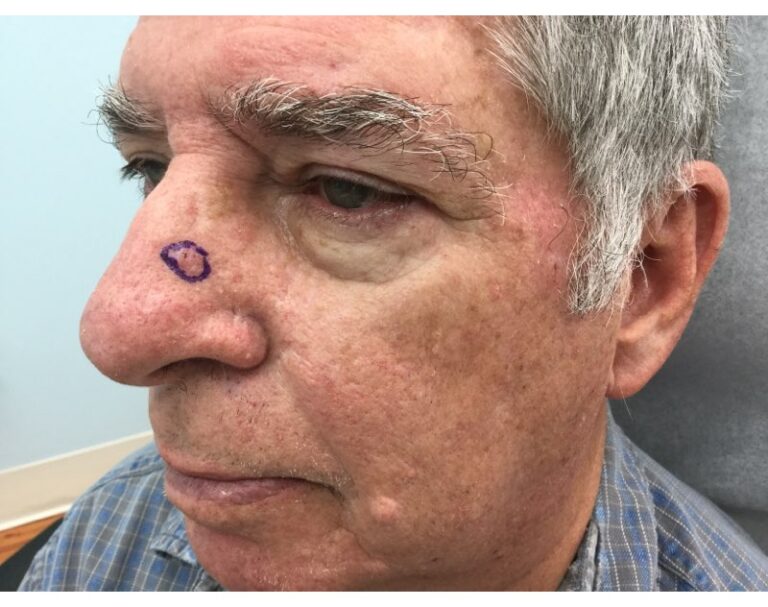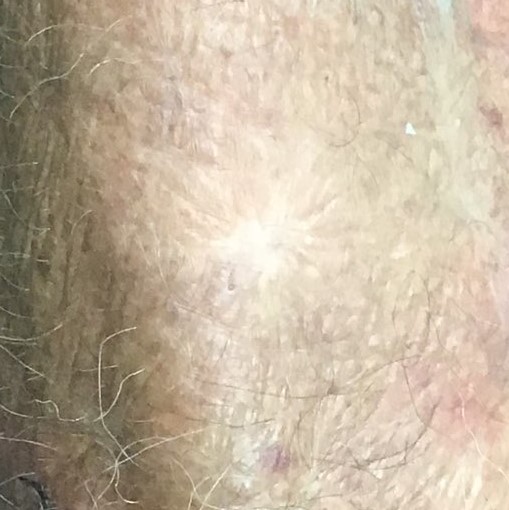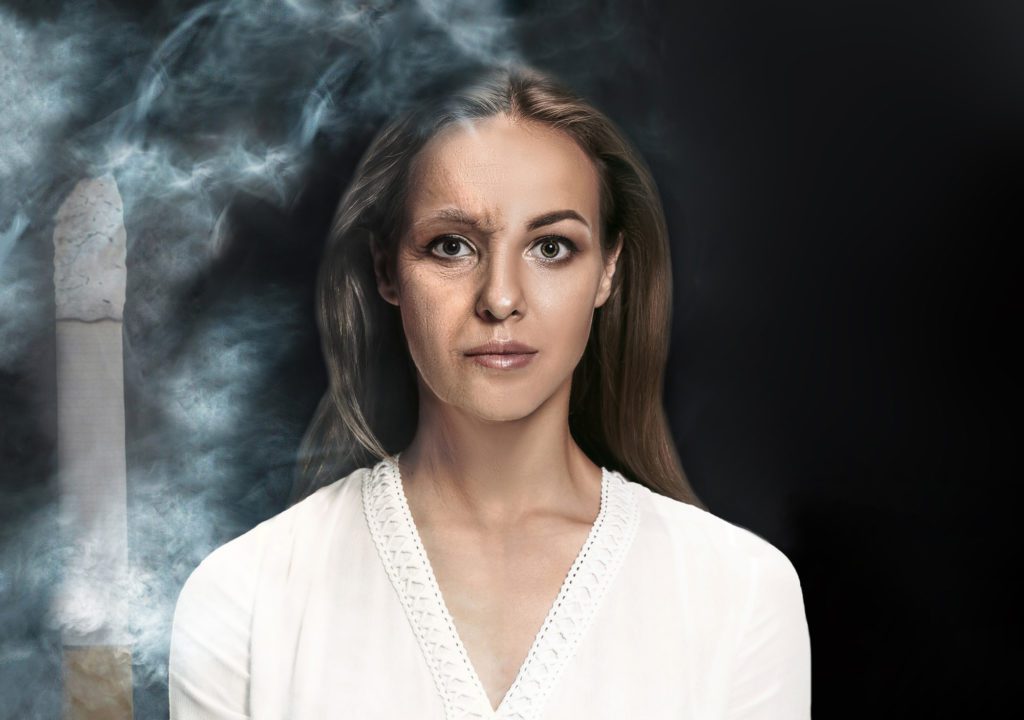
Smoking cigarettes is linked to multiple types of precancer and cancer throughout the body, but you might wonder, “Can smoking cause skin cancer?” Smoking can increase the risk of developing skin cancer and many other serious health conditions. Read on to learn more about the link between smoking and skin cancer, and the damaging effects that smoking can have on the skin.
Smoking & the Skin Cancer Risks
While smoking doesn’t appear to increase the risk of basal cell skin cancer, compared to non-smokers, a current smoker is at greater risk of developing squamous cell skin cancer. Smokers are also at greater risk of developing oral leukoplakia (precancer) and oral cancer, as well as other types of cancer. The good news is: being a former smoker doesn’t give you an increased risk of getting skin cancer.
How Does Smoking Damage Skin?
In addition to increasing the risk of squamous cell skin cancer, as well as other types of cancer, smoking can damage the skin in the following ways:
- Heat damage from the burning end of a cigarette.
- Elastosis, or loss of the skin’s elastic fibers.
- Vasoconstriction causes reduced blood flow to the skin.
- Collagen loss makes a smoker’s skin appear thinner, drier, and less elastic.
The damage is cumulative and becomes more visible over time. Long-term smoking often leads to facial wrinkles, such as smoke lines around the lips. Saggy eyelids, yellowish or greyish skin, and dry skin are also common.
Smoking can also diminish the skin’s ability to heal wounds. Vasoconstriction, a lack of oxygen flowing to the skin cells, decreased collagen production, and other factors can contribute to problems healing from skin injuries and surgical wounds. The risk of wound infection is also higher for smokers than non-smokers.
Get More Information About Skin Cancer Treatment from GentleCure
Smoking is a risk factor for skin cancer, but like too much exposure to the sun, it can be avoided. Quitting smoking can reduce your risk of cancer and other diseases, as well as premature skin aging, skin damage, and more. If you’ve been diagnosed with skin cancer, talk to your healthcare provider about Image-Guided SRT. To learn more about surgery-free treatment for common skin cancers, contact us online or call us today.
